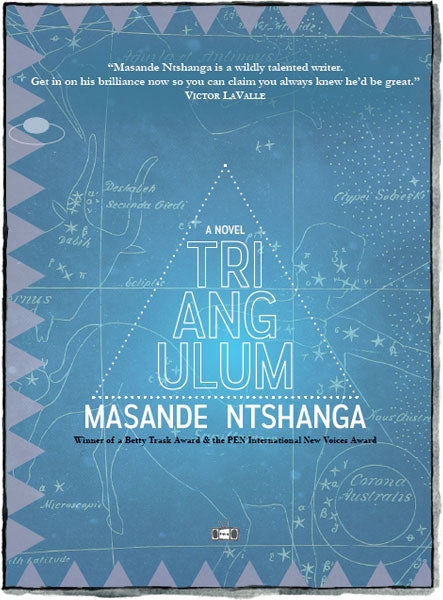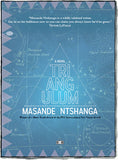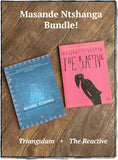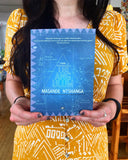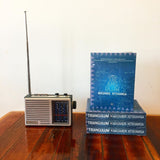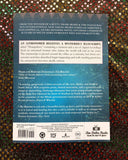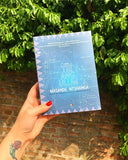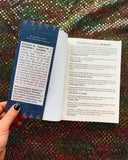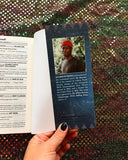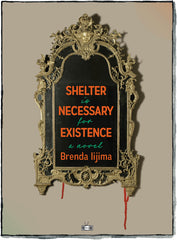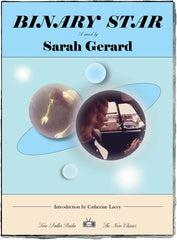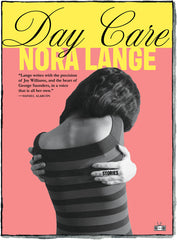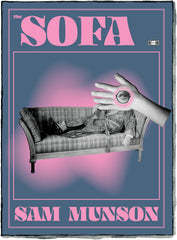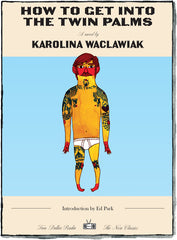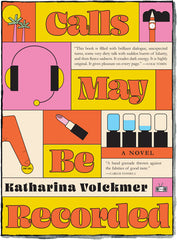Triangulum
a novel by
Masande Ntshanga
ABOUT
Triangulum has been optioned to become a TV series by SK Global Entertainment in a joint venture with BlueLight and Black Mic Mac. Acclaimed South African filmmaker Sibs Shongwe-La Mer is attached to direct the project.

Psst! Check out the Double Exposure sale here, to score both Masande Ntshanga books at once!
* 2020 Nomo Awards Shortlist for "Best Novel"
* A Best Book of 2019 —LitReactor, Entropy
"The violent and fascinating history of South Africa—from colonialism to apartheid, and the recent struggles to come to terms with this past—serves as a rich backdrop for this unsettling, enrapturing novel that brings to mind Roberto Bolano’s 2666... a novel of incredible imagination that gradually unfurls into a wonderfully realized meditation on growing up, heritage, and the effects of technological progress on the world around us."
—Alexander Moran, Booklist
Synopsis
Triangulum is an ambitious, often philosophical and genre-bending novel that covers a period of over 40 years in South Africa’s recent past and near future — starting from the collapse of the apartheid homeland system in the early 1990s, to the economic corrosion of the 2010s, and on to the looming, large-scale ecological disasters of the 2040s.
In 2040, the South African National Space Agency receives a mysterious package containing a memoir and a set of digital recordings from an unnamed woman who claims the world will end in ten years. Assigned to the case, Dr. Naomi Buthelezi, a retired professor and science-fiction writer, is hired to investigate the veracity of the materials, and whether or not the woman's claim to have heard from a “force more powerful than humankind” is genuine.
Thus begins TRIANGULUM, a found manuscript composed of the mysterious woman’s memoir and her recordings. Haunted by visions of a mysterious machine, the narrator is a seemingly adrift 17-year-old girl, whose sick father never recovered from the shock of losing his wife. She struggles to navigate school, sexual experimentation, and friendship across racial barriers in post-Apartheid South Africa.
When three girls go missing from their town, on her mother's birthday, the narrator is convinced that it has something to do with "the machine" and how her mother also went missing in the '90s. Along with her friends, Litha and Part, she discovers a puzzling book on UFOs at the library, the references and similarities in which lead the friends to believe that the text holds clues to the narrators’s mother's abduction. Drawing upon suggestions in the text, she and her friends set out on an epic journey that takes them from their small town to an underground lab, a criminal network, and finally, a mysterious, dense forest, in search of clues as to what happened to the narrator's mother.
With extraordinary aplomb and breathtaking prose, Ntshanga has crafted an inventive and marvelous artistic accomplishment.
Read an excerpt of the novel: Johannesburg Review of Books (from the South African edition, Umuzi press):
Monuments, "the remains of an alien civilisation which had now fled"
Read an excerpt of the novel: The Reading List (from the South African edition, Umuzi press):
"That night, the machine returned."
Triangulum by Masande Ntshanga =

* In most cases, none of these writers endorse this book. Our math formulas are supposed to be amusing anecdotes, similar to shelf-talkers in bookstores that say "If you like X, you might enjoy Y," or "This Book is like Cormac McCarthy writing an episode of Saved by the Bell with a soundtrack by Philip Glass."
Watch an interview with Masande Ntshanga and Thabi Madiba from Creamer Media TV's Polity, discussing his novel Triangulum (2019):
Reviews
Scroll to bottom for Goodreads reviews.
* 2020 Nommo Awards Shortlist for Best Novel
—The African Speculative Fiction Society (ASFS) announced the shortlist for the 2020 Nommo Awards, for speculative fiction by Africans living anywhere.
* A Best Book of 2019: Best Fiction Books
—Entropy
"Another inventive mind-bender, this one taking place in post apartheid South Africa, mere decades before the end of the world. I'm a sucker for the found manuscript/recording conceit, especially when paired with an unreliable narrator, and Triangulum did not disappoint. Smart science-fiction that comments on the race relations, ecology, and economics of a fascinating part of the world, all while maintaining allegiance to the characters at its core."
—Joshua Chaplinsky, LitReactor, The Best Books of 2019
"Magnificently disorienting and meticulously constructed, Triangulum couples an urgent subtext with an unceasing sense of mystery. This is a thought-provoking dream of a novel, situated within thought-provoking contexts both fictional and historical."
—Tobias Carroll, Tor.com
"Triangulum is a fascinating and thoughtful addition to the found-manuscript oeuvre."
—Ian Mond, Locus Magazine
"Masande Ntshanga’s poetic language haunts... Ntshanga has crafted a novel that triangulates South Africa’s past, present, and future, using each to better surmise the nature of the others."
—Rachel Z. Arndt, The Believer
"Spanning the period from the end of South African apartheid in the early 1990s and going through the 2040s wracked with environmental disasters, this novel is a strange, unsettling endeavor. Structured around two manuscripts centered on the life of a young woman, Masande Ntshanga weaves in all kinds of weird stuff from future-telling to disappearances to possible alien abductions and beyond. It’s a book that in many ways defies description, but it’s so compelling that it’s impossible to ignore."
—Alex Brown, The Reactor
"5 Underrated Dystopian Books"
"A warm, human read."
—Gwen Ansell, New Frame, "The future of sci-fi is African: Science fiction by Africans and set on the continent is gaining international recognition as it shows how racist, predatory colonialism makes itself felt in future worlds."
"Masande Ntshanga’s Triangulum is a fearless portrait of life over four decades from apartheid’s collapse to the maws of the corporate machine... One of the most inventive and exciting writers in [South Africa] today."
—Monique Verduyn, BusinessLive
"The violent and fascinating history of South Africa—from colonialism to apartheid, and the recent struggles to come to terms with this past—serves as a rich backdrop for this unsettling, enrapturing novel that brings to mind Roberto Bolano’s 2666... a novel of incredible imagination that gradually unfurls into a wonderfully realized meditation on growing up, heritage, and the effects of technological progress on the world around us."
—Alexander Moran, Booklist
"Spanning roughly fifty years from South Africa’s recent past to its near future, Masande Ntshanga’s sophomore novel, Triangulum, employs an altogether more thoughtful melding of historical and sci-fi colonial narratives. Following the life of an anonymous narrator, we inhabit not a country that has enjoyed a conclusive, triumphant end of apartheid, but rather one still plagued by alien rule which mutates, subtly and insidiously, beyond recognition."
—Matt Loreti, Cleveland Review of Books
"This quirky, futuristic novel skirts the boundary of science fiction... Ntshanga writes convincingly from the viewpoint of his narrator as she advances into adulthood. Her struggles to make sense of the strangeness and unpredictability of her world and experiences make this a stirring coming-of-age story."
—Publishers Weekly
"Masande has done a phenomenal job of crafting a local sci-fi. The writing is exceptional and he has certainly pushed the envelope with this. A fantastic read."
—People Magazine South Africa
"By time-travelling and genre-bending, Triangulum is able to pack a mean and nuanced punch."
—Zaza Hlalethwa, Mail & Guardian
"Like Frankenstein in Baghdad and Infidel... Ntshanga effectively uses a work of genre fiction to reveal meaning in our own world. Everyday events in a changing twentieth century South Africa and its potential future is used as background to a larger story of our own frail and fallible human nature, written in quietly beautiful language that is poetic, yet conversational and engaging enough to ground its unreal events."
—Terence Taylor, Nightmare (Volume 9: June 2019)
"An unprecedented fusion of science-fiction, mystery, and literary fiction, this book blurs the line between reality and imagination."
—Beth Mowbray, The Nerd Daily
"In this modern coming-of-age tale, Masande Nsthanga... takes us on dystopic journey into the most suprising places, and also on a journey into the human soul haunted by the past, revolted by injustice and hungry for freedom."
—Ioana Danaila, The African Book Review
"Ntshanga has written a wonder of speculative fiction, with much to say about oppression, the onward march of technology and corporations, and the fate of the earth in the hands of human civilization. Grounded in a coming-of-age story and compelled by masterfully deployed elements of both history and science fiction, this novel is in a genre all its own. Triangulum is an astonishing puzzle of a book, one that I immediately wanted to reread in order to marvel at all of the interlocking pieces with a sharper eye."
—Kelsey O'Rourke, Literati Bookstore
"I think this was one of the best science fiction epics I've read in a while."
—Jacob Hoefer via Goodreads, bookseller at Labyrinth Books
"Come for the unexpected convergence of Afro-futurism, eco-terrorism, alien abductions, and more. Stay for the unsettling meditations on South Africa’s dystopian past and present, the grandiose yet subversive re-imagining of humanity’s relationship to nature, and the poignant impulse, from which no character is spared, to make aliens of each other and of themselves."
—Mekiya Walters, The Arkansas International
"[Ntshanga's] new novel Triangulum takes on a broader focus, extending into the near future and encompassing currents both historical and apocalyptic. The result promises to be a unique, unexpected juxtaposition of grand ideas and personal turmoil."
—Tobias Carroll, Lit Hub, "11 Books You Should Read This May"
"Want something that is surely in the running for the Best Genre Bending Mind Warp of a Dystopian Novel Not Set in the USA? ... a book that will appeal to people who like guys like Borges and Bolaño."
—Jason Diamond, InsideHook
"With his new novel Triangulum, Masande Ntshanga expands on the scope of his earlier novel The Reactive to tell the story of several decades of South African history, beginning in the recent past and extending on into the near future. Ntshanga’s fiction blends the high-concept and numerous lived-in qualities, and this expansion offers readers an entirely different side of his literary work."
—Vol.1 Brooklyn
"Triangulum... is a mysterious coming-of-age story, a mash-up of science fiction and historical fiction."
—The Johannesburg Review of Books
"Concluding Griffin’s top five picks is Masande Ntshanga’s Triangulum. The book mixes science-fiction with philosophy and details of South African history seldom examined through the life of maths prodigy who is haunted by the loss of her mother."
—Bridge Books (Johannesburg, South Africa) owner Griffin Shea picks his top reads for 2019, City Buzz
"Masande Ntshanga’s Triangulum is a suspenseful dose of futuristic, apocalyptic, and philosophical goodness."
—The Notable African Books of 2019, Brittle Paper
"[Triangulum] brilliantly crafts together a multi-layered story filled with deep, thought provoking themes that include Post-Apartheid South Africa’s coming off age issues around identity, gender fluidity, sexuality, parenting, mental health,destruction of earth’s ecology, extra-terrestrial beings as well as South Africa’s apartheid historical atrocities of segregration and racial discriminatiton."
—Nachisanga, Afrika Is Woke
"This new genre-bending novel with elements of science fiction covers a period of 40 years past and present in South Africa. In 2040, the South African National Space Agency receives a mysterious package containing a memoir and a set of digital recordings from an unnamed woman who claims the world will end in ten years."
—Layla Haidrani, Cosmopolitan, '32 new books by people of colour to get excited about in 2019'
"An inventive novel."
—Jennifer Platt, Sunday Times (South Africa), 'A look at the literature 2019 has in store'
A "Most Anticipated Book of 2019"
—John Madera, Big Other
Praise for Masande Ntshanga's debut novel, The Reactive:
*Winner of The Betty Trask Award (2018)
*Sunday Times Barry Ronge Fiction Prize Finalist
*Etisalat Prize for Literature Longlist
*One of the Best Books of the Year —Men's Journal, Flavorwire, City Press, The Sunday Times, The Star, This is Africa, Africa's a Country, Sunday World
A "Must-Read Book for June 2016." —Flavorwire
A "Best Book of June 2016." —Michael Schaub, Men's Journal
"The Reactive is not only a beautiful novel, as fierce and formally innovative as it is lyrical and moving, but also a call to inhabit as well as to critique the symbolic structures of our world that can both empower and betray us."
—Nathan Goldman, Full Stop
"[The Reactive is] a searing, gorgeously written account of life, love, illness, and death in South Africa. With exquisite prose, formal innovation, and a masterful command of storytelling, Ntshanga illustrates how some young people navigated the dusk that followed the dawn of freedom in South Africa and humanizes the casualties of the Mbeki government's fatal policies on HIV & AIDS."
—Naomi Jackson, Poets & Writers
"Woozy, touching... a novel that delivers an unexpected love letter to Cape Town, painting it as a place of frustrated glory. The Reactive often teems with a beauty that seems to carry on in front of its glue-huffing wasters despite themselves."
—Marian Ryan, Slate
"One of South Africa’s most promising new voices... Ntshanga weaves a rollercoaster ride of a story that will leave you questioning the meaning of family, despair, and hope."
—Ayiba Magazine
"[The Reactive] takes place during a period of social and political tumult that mirrors that mental turmoil of the lead character, and it makes for an extremely sharp, challenging read. This is not a book about a fast-paced, compelling plot. It's a character study, an emotional journey, and right from the opening line, it's a brutal indictment"
—XOJane.com
"Sharp and affecting... [Ntshanga] directs the story with an amazing precision of language that few writers can achieve in a lifetime of work. With a style all his own, Ntshanga animates despair and agitation in a collage of moments, memories and landscapes that speak volumes of a exigent moment in South African history. Ntshanga grapples with the past and the too-real present with grace, but not clemency, with hope, but not too much."
—Alibi
"With The Reactive, [Ntshanga] has created an immersive and powerful portrait of drug use, community, and health issues by exploring what it was like to be young, black, South African, and HIV positive in the early aughts."
—VICE
"[The Reactive] is an affecting, slow-burning novel that gives a fantastic sense of a particular place and time, and of the haunted inner life of its protagonist."
—Tobias Carroll, Minneapolis Star-Tribune
"This novel about an HIV+ man who mourns the death of his brother in Cape Town is shaping up to be one of the best debuts of 2016."
—Jonathon Sturgeon, Flavorwire
"Hailed as a fresh and fearless portrait of contemporary South African life, The Reactive marks Ntshanga as a global talent to watch."
—Librairie Drawn & Quarterly, Largehearted Boy
"A book that sucks us like vapor through the streets of Cape Town. [Ntshanga] has a sympathetic ear for the particular rhythms of young friendship, the banter, the petty arguments, the sticky and fleeting fun."
—David Schuman, The Rumpus
"[The Reactive] is a seriously powerful book set in a place I know little about, featuring people dealing with things I know little about; but somehow, the amazing themes of redemption, struggle, and the attempt to find meaning in life made it possible to connect in a compelling way with these characters."
—Kelsey Westenberg, Roscoe Books
"Ntshanga deftly illustrates the growing pains of a new country through three friends who seem intent on obliterating their minds, but who nevertheless cling to their dreams."
—Dmitry Samarov, Vol. 1 Brooklyn
"Gritty and revealing, Ntshanga's debut novel offers a brazen portrait of present-day South Africa. This is an eye-opening, ambitious novel."
—Publishers Weekly
"Ntshanga offers a devastating story yet tells it with noteworthy glow and flow that keeps pages turning until the glimmer-of-hope ending."
—Library Journal
"Triangulum unfolds through the melding of historical fiction, science fiction and mystery."
—Zaza Hlalethwa, Mail & Guardian, "The science of writing fiction" interview
"A powerful, compassionate story that refuses to rest or shuffle off into the murk of the mind. It exists so that we never forget."
—Benjamin Woodard, Numero Cinq Magazine
"Electrifying... [Ntshanga] succeeds at exploring major themes—illness, family, and, most effectively, class—while keeping readers in suspense. Ntshanga's promising debut is both moving and satisfyingly complex."
—Kirkus Reviews
"[The Reactive is] one of this year’s most startling novels."
—Mail & Guardian
"From time to time a novel comes along that is so strange, yet so utterly fresh and compelling, that it feels tuned into a reality with which you are not yet familiar."
—Aerodrome
"One of [Ntshanga's] best qualities as a writer is to defamiliarize aspects of South African existence, which through our habits of speaking and writing, have boiled down to bland indifference... The Reactive will probably remain, along with Imraan Coovadia's High Low In-between and Jonny Steinberg's Three Letter Plague, as a seminal work confronting [a] period in our country's history."
—The Sunday Independent
"Masande Ntshanga’s debut novel The Reactive follows an HIV-positive young man who is dealing with the long-lasting trauma of his brother’s death by selling his antiretroviral drugs, chewing a lot of khat and drifting around suburban Cape Town with his friends. Describing the novel baldly, though, ignores its immense thematic depth. [The Reactive is] one of this year’s most startling novels."
—Mail & Guardian
"Elegiac... an astoundingly brilliant novel, radiating with understanding and compassion. It fulfills William Faulkner’s injunction that 'the poet’s voice need not merely be the record of man; it can be one of the props, the pillars to help him endure and prevail.'"
—City Press
"With a fine lyricism of style Ntshanga weaves a story both filled with ennui and weird purpose. And if that sounds unlikely, it is a feat he pulls off with brilliance... The shining point of this novel is the author's ability to create the confusion and changes young South Africans have to deal with. In a modern state there are calls and cries from the past that still make claims on them. They face uncertainty with their loud music, their counter-cultural lifestyles, but beneath the veneer they are all likeable characters who are searching for authenticity. Never preachy or pretentious, this book is a breath of fresh air in an often fetid landscape. Read it, savor the beauty of the writing, and you will find yourself drawn into a dreamscape you may recognize."
—The New Age
Author
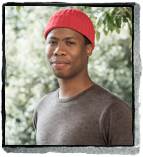
Masande Ntshanga is the author of the acclaimed novels The Reactive, shortlisted for the 2015 Barry Ronge Fiction Prize and longlisted for the 2015 Etisalat Prize for Literature, and Triangulum, shortlisted for the 2020 Nomo Awards for Best Novel. He is the winner of the Betty Trask Award (2018), winner of the inaugural PEN International New Voices Award in 2013, and a finalist for the Caine Prize in 2015. He was born in East London in 1986 and graduated with a degree in Film and Media and an Honours degree in English Studies from UCT, where he became a creative writing fellow, completing his Masters in Creative Writing under the Mellon Mays Foundation. He received a Fulbright Award, an NRF Freestanding Masters scholarship, a Civitella Ranieri Fellowship and a Bundanon Trust Award. His work has appeared in The White Review, Chimurenga, VICE and n + 1. He has also written for Rolling Stone magazine.
Visit the Masande Ntshanga author page to view videos, read interviews, and more!
Sneak Peek
Enjoy a sneak peek of select pages from Triangulum! (Use the “full screen” option at bottom right to enlarge the pages):
info
LIST PRICE: $17.99
PAGES: 367
PRINT ISBN: 9781937512774
DIGITAL ISBN: 978-1-937512-78-1
RELEASE DATE: 5/14/2019
SIZE: 5.5" x 7.5"
Printed in Canada by Marquis, with the following environmental statement:
Printed on Rolland Enviro. This paper contains 100% post-consumer fiber, is manufactured using renewable energy - Biogas and processed chlorine free. It is FSC certified, Rainforest Alliance and Ancient Forest Friendly certified.
Guide
Click here to view and/or download as PDF.
Book Club and Reader Guide: Questions and Topics for Discussion
1. TRIANGULUM makes use of different genres (mystery, science fiction, coming-of-age) to mark the narrator’s journey from girlhood to adulthood, and South Africa’s transition from apartheid to a technocratic future state. What effect does this blending of genres have on the narrative?
2. One of the central questions in TRIANGULUM is whether or not the imagination can be posited as a “memory of the future.” Did you pick this up? What do you make of the assertion?
3. In seeing “the machine,” the narrator, much like Nongqawuse, Cassandra, and Joan of Arc before her, can be described as an imperfect vessel of a communication much bigger than herself. Can you locate other historical or modern women figures who could fit this description?
4. TRIANGULUM positions South Africa as integral to the survival of the planet. This is different from most science fiction narratives, which tend to have the West or USA as the center. How did this difference influence your reading of the novel and your expectations of the genre?
5. The narrator ponders the following:
I thought about the Accelerated Christian Education program I’d attended as a
child—an operating system, I now saw, unsuited to the continent’s hardware—
along with the various other iterations of formal education I’d encountered; all
harmful, but necessitated by our dispossession and status as immigrants in
industrialized South Africa.
What do you make of the narrator’s idea that Western education might not be suitable to Africa’s indigenous population (and by extension, other colonized peoples)—that it’s “harmful to a degree,” but “necessitated” by dispossession?
6. In her memoir, the narrator mentions that in 1981, when her parents met, Lennox Leslie Sebe, the first ruler of the Ciskei Homeland, was awarded the Order of Good Hope, the apartheid republic’s highest accolade. He was, of course, a black man. In what way does this highlight the inconsistency in apartheid’s logic and the perennial collusion of power across racial lines?
7. In TRIANGULUM, The Tank, a radical hacker group, is seen as existing in opposition to The Returners, a radical environmentalist group. Whose philosophies did you find yourself gravitating toward and why?
8. In detailing the narrator’s upbringing, TRIANGULUM deals with the melancholy of small-town girlhood, the hollowness of lower-middle-class childhood under unjust authorities, and the power imbalance between adults and children. How did you relate to this, and how would you say it informs who the narrator grows up to become?
9. TRIANGULUM is a novel of patterns and allusions, the most dominant being the number three and the shape of the triangle. How many references to this shape and number—and their implications—did you find in the text, in terms of its content, structure, and themes?
10. TRIANGULUM posits an alternative perception of mental illness and its diagnosis. In what ways, and to which degree, do you think we should be open to differing knowledge systems when it comes to mental health?

